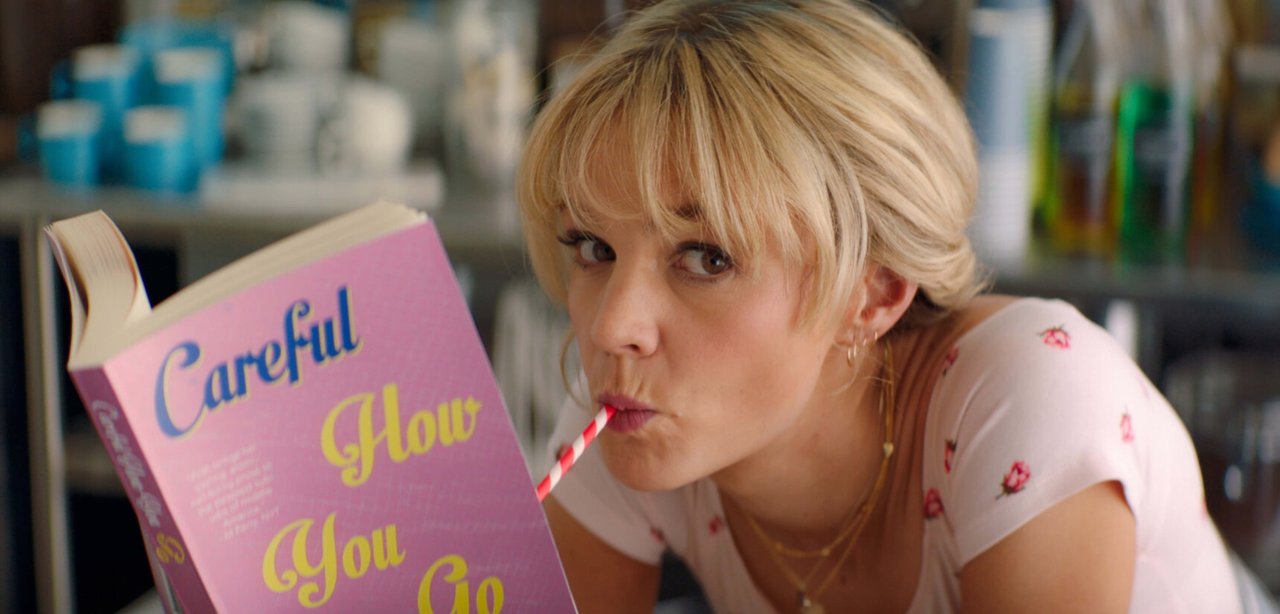The plot of Academy Award nominated Promising Young Woman (finally available to watch on Sky Cinema and NOW TV) centres on Cassie who adopts a novel approach to avenging the rape of her friend.
Revenge has featured as a key theme in literature and drama virtually since writing began, from Euripides (Medea) and Seneca (Thyestes) to Shakespeare (Titus Andronicus), Alexandre Dumas (The Count of Monte Cristo) and more recently Gillian Flynn (Gone Girl).
The Jacobean era (1603-25) saw an intense interest in retribution as the subject matter for plays, with a fair few still performed to this day, works such as The Duchess of Malfi (John Webster), ‘Tis Pity She’s a Whore (John Ford) and The Malcontent (John Marston).
On the silver screen, vengeance has always been a popular subject for cinemagoers, reaching a nadir of sorts in the 1970s with the trio of Straw Dogs (1971), Death Wish (1974) and I Spit on Your Grave (1978).
Motivations for revenge in the movies vary; in some cases, revenge is enacted for the pettiest reasons (such as an overheard insult in Ripley’s Game, 2002), in others it’s a response to suffering acts of appalling violence (Jodie Foster in The Brave One, 2007). In all cases, it’s less about the motivation and more about the means:
Elle (2016) – Amazon Rent/Buy
Paul (Basic Instinct) Verhoeven’s WWII thriller Black Book (2006) represented his successful return to foreign language filmmaking; this was followed ten years later by Elle, which won the director still greater critical acclaim.
The superb Isabelle Huppert plays Michèle Leblanc, the affluent head of a video game company. When she is raped in her home by an intruder, her response is complicated by the fact that her father is a notorious (imprisoned) mass murderer.
Unwilling to inform the police, Leblanc coolly checks off the rather lengthy list of possible suspects until she eventually discovers the truth.
The picture plays as a pitch-black comedy, but some viewers may find Michèle’s actions hard to fathom, noting that the source material (the 2012 novel “Oh…”) was written by a male author, Philippe Djian.
Dijan also wrote 37°2 le matin (1985), which was filmed by Jean-Jacques Beineix as the cult hit Betty Blue (1986).
The Dressmaker (2015) – Amazon Rent/Buy
Described by director Jocelyn Moorhouse as ‘Clint Eastwood’s Unforgiven with a sewing machine’, this Australian black comedy set in 1951 perhaps more closely resembles Eastwood’s High Plains Drifter (19730, especially at its fiery denouement.
Wrongfully accused of the death of a classmate when a child, Myrtle Dunnage (Kate Winslet) is subsequently exiled by the Outback townsfolk of Dungatar. She returns twenty-five years later in the guise of ‘Tilly’, the dressmaker of the picture’s title – aiming to wreak her revenge on the corrupt locals who scapegoated her.
Winslet is supported by a veritable who’s who of Antipodean acting talent, including Judy Davis, Liam Hemsworth, Hugo Weaving and Kerry Fox.
The Help (2011) – Disney+, Amazon Prime, Amazon Rent/Buy
Although later virtually disowned by stars Viola Davis and Bryce Dallas Howard, The Help received critical praise and box office success on its release. 10 years later the picture appears out of step with society, as this tale of black domestic servants in the early 1960s Mississippi is told chiefly through the lens of white characters and writers; the novel of the movie’s title was written by Kathryn Stockett and adapted by director Tate Taylor.
However, there is one great scene of revenge in the picture. When maid Minny (Octavia Spencer) is fired by her racist employer Hilly (Bryce Dallas Howard) for using the guest bathroom in her commodious abode, she decides on a unique form of payback. As a peace offering, Minny offers her former boss her freshly baked renowned chocolate tart. After Hilly consumes two lip-smacking slices, her ex-employee reveals that she had baked her own excrement into the pie.
13 Assassins (2010) – Amazon Rent/Buy
Takashi Miike’s 13 Assassins is one of my favourite movies. Set during the final years of Japan’s Edo era, the picture follows the titular group, who execute an intricate plan to rid the land of Matsudaira Naritsugu (Goro Inagaki), the cowardly and sadistic leader of the Akashi clan before he can ascend to the ruling Shogunate Council.
And Naritsugu is truly deserving of his come-uppance, as he has raped, dismembered, blinded, tortured, and murdered many of the lesser nobility and commoners the assassins were bound to. Kōji Yakusho (Memoirs of a Geisha) stars as the world-weary leader and chief strategist of the team, who manage to overcome 200 of Naritsugu’s armed retainers in a booby-trapped village.
If you enjoyed 13 Assassins, I would recommend that you take a look at John Woo’s epic two-part Red Cliff (2008/09).
Dead Man’s Shoes (2004)
Playing like a grittier Get Carter (no mean feat), Shane Meadow’s thriller sees ex-squaddie Richard (Paddy Considine) out for vengeance against a small-time drug gang whose abuse led directly to the suicide/murder of his mentally impaired brother Anthony (Toby Kebell).
Until the ending of the movie Considine’s character is laser focused on paying back the gang for his brother’s death, using a variety of methods, guns, knives, and a kettle laced with drugs that the crew unknowingly use for their tea/coffee/Pot Noodles.
Former light middleweight boxer Gary Stretch (Alexander) makes a decent fist (sic) of his role as chief drug dealer Sonny.
Kill Bill Volume I (2003) and II (2004) – Amazon Rent/Buy
No round-up of revenge movies would be complete without Quentin Tarantino’s Kill Bill two-parter.
Uma Thurman stars as the Bride, a former member of the Deadly Viper Assassination Squad, out for retribution when betrayed by colleagues on her wedding day after being shot and left for dead at the altar with her unborn child. The 247-minute combined running time of the two films is a something of schlep, with the pace definitely flagging in Volume II, extended flashbacks to Thurman’s martial arts training signalling forty winks time for me.
Still, there are some great action sequences (such as the fight at the House of Blue Leaves) and Tarantino’s interesting use of vintage music, although some (eg. Morricone) a little too ‘on the nose’ for my taste.
One thing that some overlook about Volume II is the excellent performance of Michael Madsen as former Viper Squad member Budd, down on his luck and living in a dingy trailer, but who retains a surprising amount of his previous smarts.
Hannibal (2001) – Starzplay, Amazon Rent/Buy
Cinema’s favourite Long Pig enthusiast returned in this sequel to 1991’s Silence of the Lambs, with Anthony Hopkins getting his teeth into (sic) the role of Hannibal Lector again, this time with Julianne Moore replacing Jodie Foster as Clarice Starling (soon to be spun off in a CBS series).
Ridley Scott’s picture presents two duelling revenge plots; that of wheelchair bound self-disfigured billionaire paedophile Mason Verger (an uncredited Gary Oldman) against Lector, and that of Hannibal himself against Ray Liotta’s sleazy Justice Department official Paul Krendler.
It goes without saying that Hannibal wins out in both storylines, getting Verger booted into a pit of flesh-eating hogs and then feeding Krendler’s own sauteed pre-frontal lobe to him in a particularly memorable sequence.
Titus (1999) – full movie available to watch free on YouTube
Even if you are not a fan of the Bard, I would thoroughly recommend Julie Taymor’s visually stunning adaptation of Shakespeare’s revenge tragedy Titus Andronicus.
Mixing contemporary and period costuming, striking locations (including Rome’s EUR district, Pula in Croatia, and Hadrian’s Tivoli Villa) and superb cinematography courtesy of Luciano Tovoli (The Passenger/Reversal of Fortune), Titus boasts a truly unique look.
Some of its influence can be seen in later pictures such as Tarsem Singh’s The Immortals (2011), where the imprisoned Titans bear a distinct resemblance to the Roman legions at the beginning of Taymor’s film.
Despite this, Titus was a box office bomb and drew a mixed reception from critics but has since become a cult movie.
Briefly, conquering general Titus Andronicus (Anthony Hopkins again) finds himself seriously outfoxed by captured Queen of the Goths Tamora (Jessica Lange) and resorts to desperate measures to restore both his honour and avenge his stricken family. Hopkins dons a chef’s hat to prepare and host a scrumptious dinner in honour of the Queen and her sons…who appear not to have made it to the glitzy soiree. At least as guests.
The Limey (1999) – Amazon Rent/Buy
Another favourite of mine, Steven Soderbergh’s elegiac thriller sees an excellent Terence Stamp star as cockney criminal Wilson, newly out of prison and on a quest for vengeance in Los Angeles after he hears about the death of his daughter Jenny (Melissa George).
Despite his age and petite stature, Wilson proves an unstoppable force when tracking down sleazy record producer Terry Valentine (Peter Fonda) who he rightly believes is responsible for Jenny’s demise.
Ridicule (1996)
The intricacies of 18th century court etiquette at Versailles are dissected in Patrice Leconte’s (The Man on the Train) excellent period drama. Amongst the assembled aristos, no social faux pas is forgotten, and no slights forgiven. Into this decadent milieu steps idealistic minor nobleman Baron Grégoire Ponceludon de Malavoy (Charles Berling), an engineer seeking royal approval for a project to rid his region of malaria-breeding swamps.
Despite his relative gaucheness, Malavoy’s quick wit and eloquent tongue swiftly make him one to watch (and scheme against) at Louis XVI’s court. A great supporting cast includes Jean Rochefort and Fanny Ardant. If you liked Amadeus (1985) and Dangerous Liaisons (1988) you should love Ridicule.







Comments